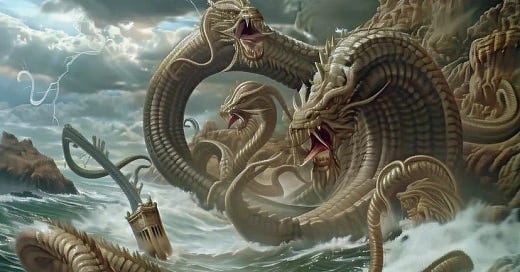It happened that in the oldest of days, long before Men ever sailed East, long after the oceans devoured Narratsyii that Men sailed east across the Béantic Sea that is to say the Gaping Ocean. It was said that they did this when their own lands sunk into the depths of the ocean, having awakened there not long after the Titannomachi long before Prometheu…
© 2025 Brothers Krynn
Substack is the home for great culture



